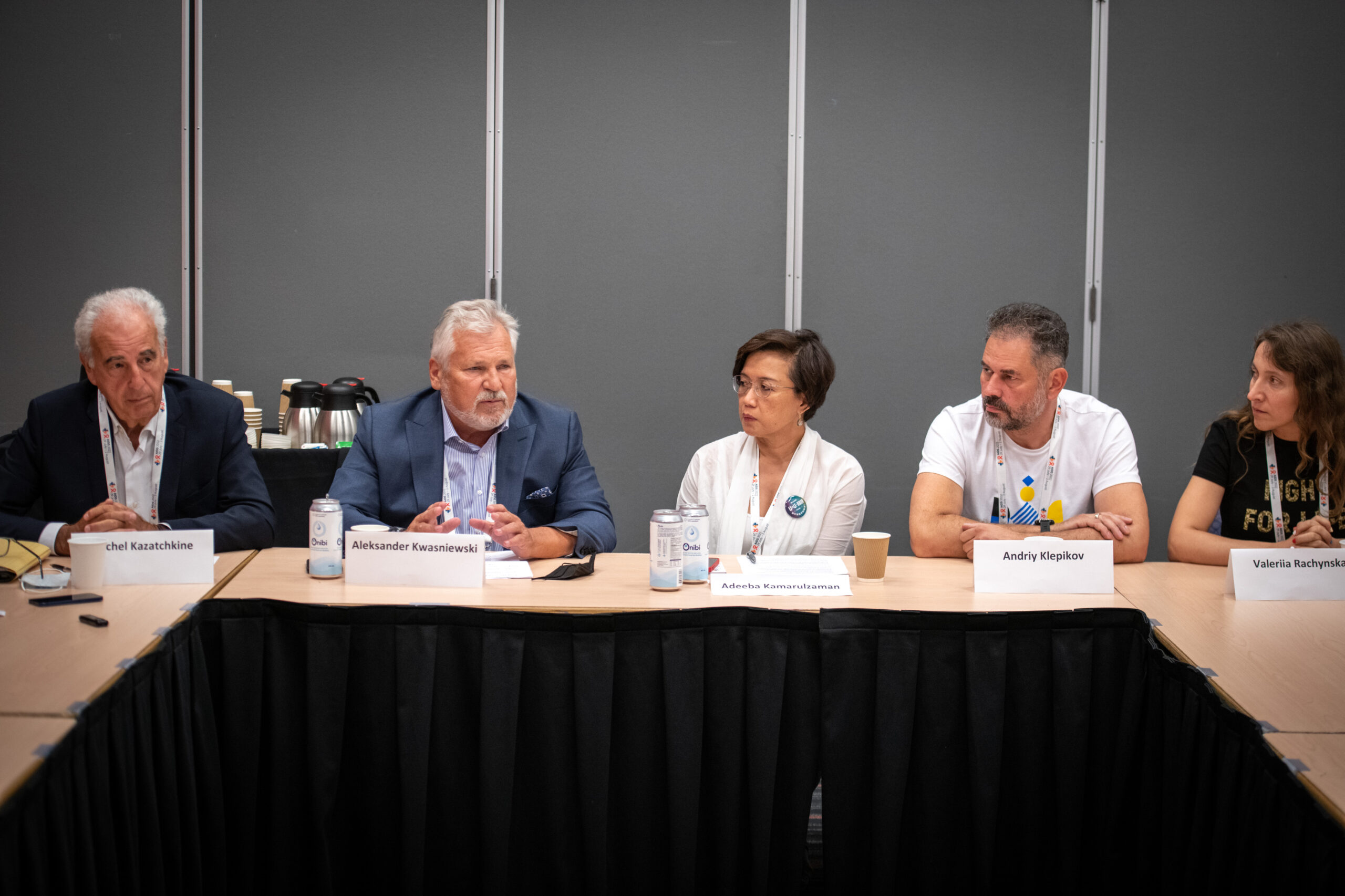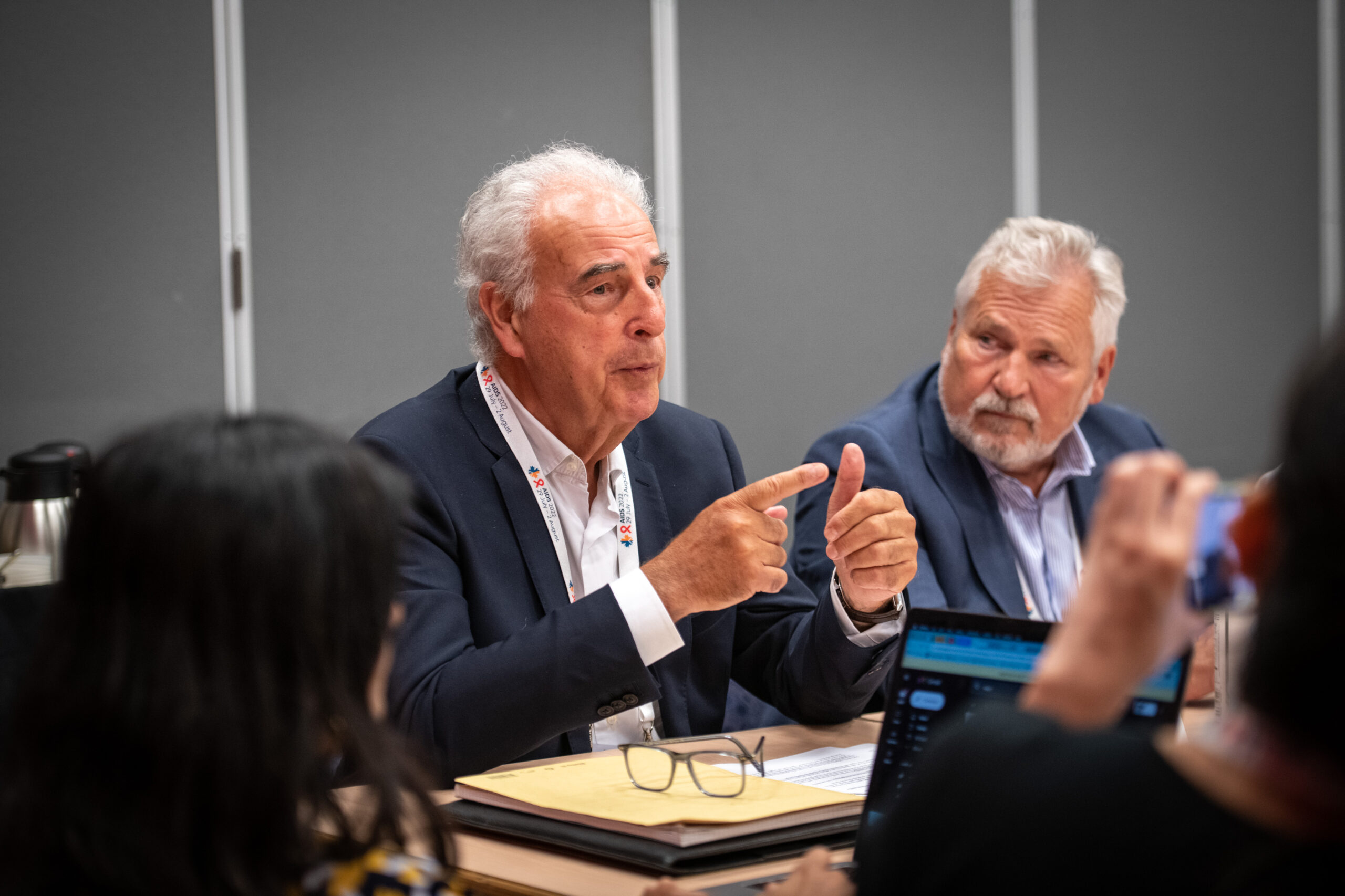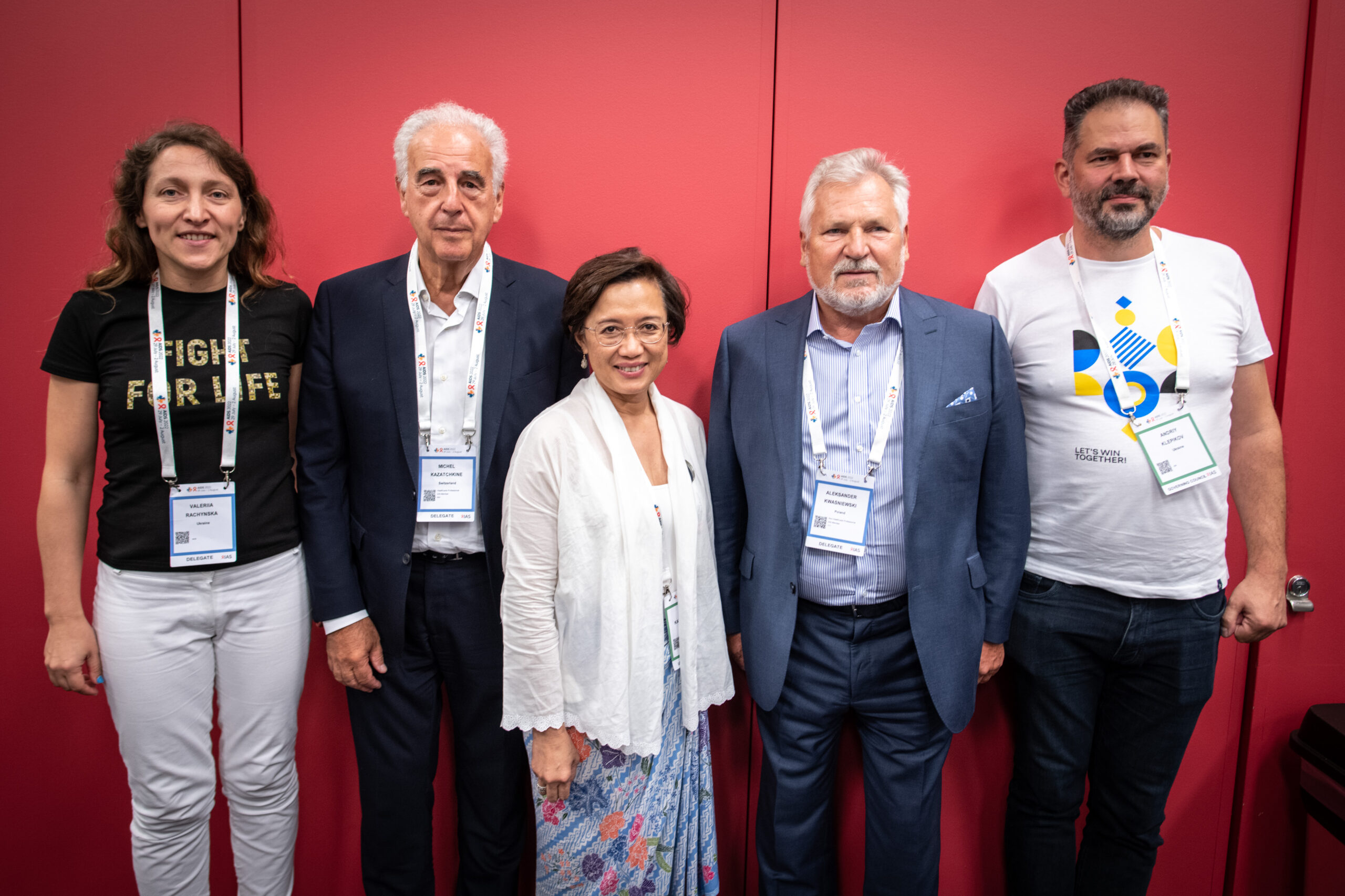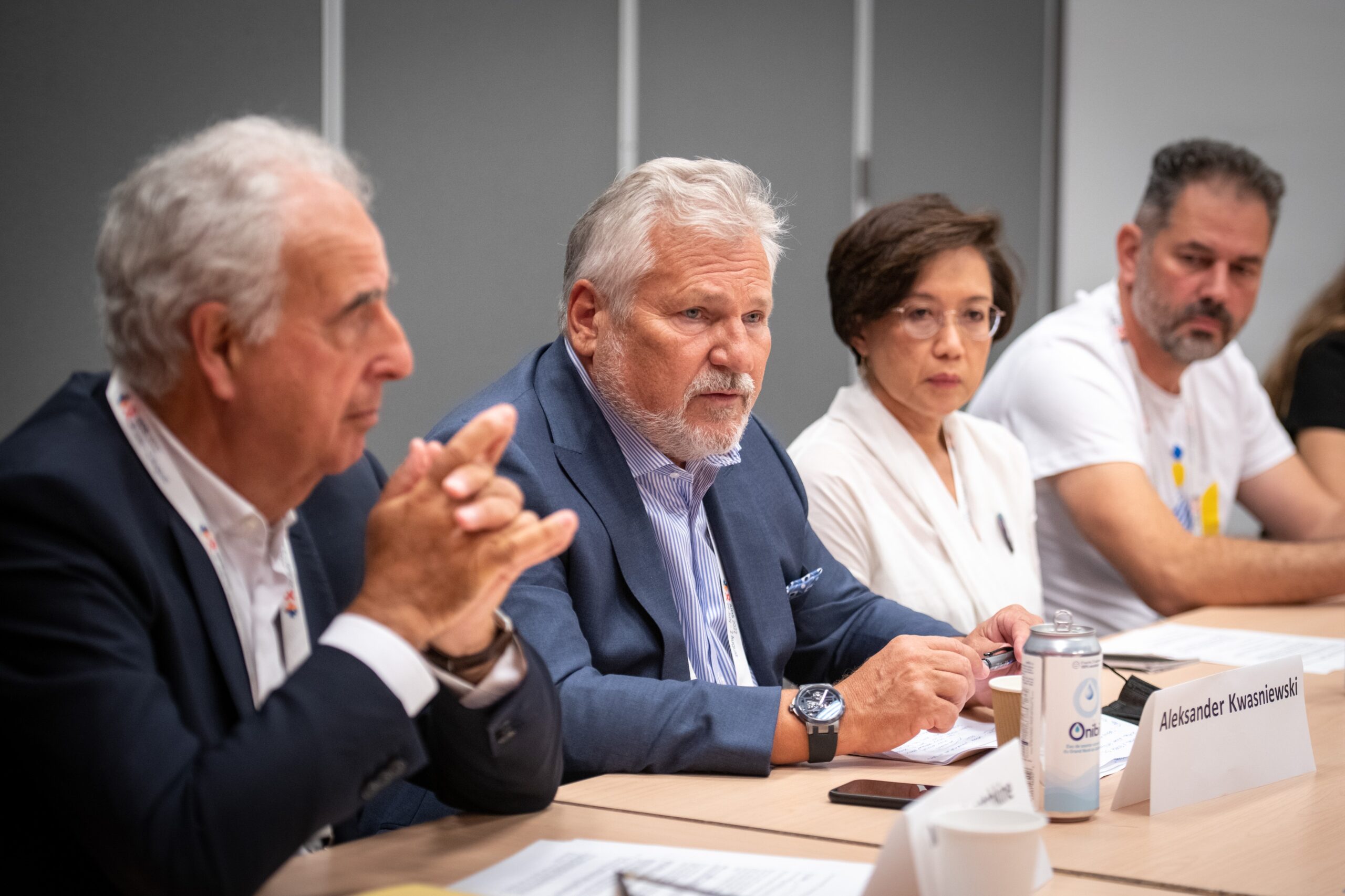International AIDS Conference, Montreal, July 29-August 2, 2022
Media Roundtable: The Russian invasion of Ukraine: implications for the delivery of HIV, TB and Hepatitis services in the Eastern European and Central Asian Region (Sunday July 31)
The war in Ukraine adds deaths, suffering and an acute health crisis to a region that faces many public health challenges, including a still growing HIV epidemic, a high burden of multi-drug resistant tuberculosis and a high prevalence of injecting drug use.
Aleksander Kwasniewski and Michel Kazatchkine, Commissioners of the regional Commission on drug policy (ECECACD) together with Andrey Klepikov (Alliance for Public Health) and Valeriya Rachynska (100% Life Network), partners from Ukraine shared visions, prospects and testimonies about the situation in Ukraine with top-level media.
Professor Kazatchkine have described the war as devastating for people, people’s health, health systems in Ukraine. Major shock to health systems including destructions of infrastructures, limited availability of medical supplies, shortages in healthcare personnel, health care workers killed, injured had to flee their homes.
“Crude estimates suggest that for every direct war casualty, there are even more people killed indirectly because of the health impacts of war”
Yet, what is striking about Ukraine, is the extraordinary resilience: surgeons, nurses working under unimaginable conditions. NGOs continue working, reaching people in extraordinary challenging locations, despite the huge obstacles. Professor Kazatchkine said the health system in Ukraine was about 70% functional.
“We anticipate a major health/ public health crisis across the broader Eastern European and Central Asian region as a consequence of the economic downturn.”
Given the impact on mental health and the economic downturn, one can anticipate an increase in use and trafficking across the entire region. The war places under huge strain the hard-won gains made in recent years in the HIV response in Ukraine and in the entire region.
The described situation presents huge challenges for the region. A newly established Eastern and Central European and Central Asian Commission on Drug Policy (ECECACD) works to promote and support more balanced and evidence-based drug policy in the region. Aleksander Kwasniewski, former president of Poland and member of the Global Commission on Drug Policy has initiated the regional Commission in 2019. The Commission was created in 2021.
Drug policy in the region remains to be conservative and repressive. General public opinion mostly support existing tough approaches and policies.
“We are expired by two other regional Commissions that have been working in Latin America and Africa. Czech Republic is a good example of the effective drug policy in the region”
Commissioners are committed to provide evidence-based information and to promote drug policy reform in the countries of the region. Current crisis and the war provides not just limitation but also certain opportunities to make positive changes in the region.



